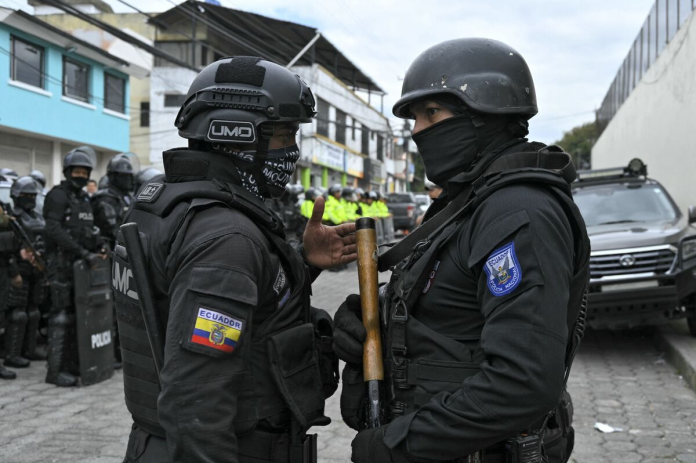Ecuadorian police on Thursday arrested a major figure in the nation’s infamous Los Choneros gang, a mid-level lieutenant identified as “Mongolo” and a ‘romantic partner’ of the gang’s leader, Jose “Fito” Macias, identified as “Verónica B.”
Continued Operations
The arrests were the result of a large, coordinated operation that employed 24 raids conducted by police across the provinces of Manabí and Guayas, both located on Ecuador’s western coast, in an effort to “counteract the crimes committed by the terrorist group Los Choneros such as: hitmen, kidnapping, vehicle theft, robbery on highways, extortion, trafficking of controlled substances, front men, possession and carrying of firearms, hitmen, among other related crimes.”
Mongolo was identified by police as an “intermediate value target” who allegedly directed and authorized numerous criminal acts within the gang’s structure. Authorities stated that the foundation of the operation was built upon an earlier raid in early April in Manabí which led to the arrest of seven accused criminals, one of whom, identified as Kerly T, had lived with Mongolo possibly allowing authorities to ascertain Mongolo’s location from those arrested.
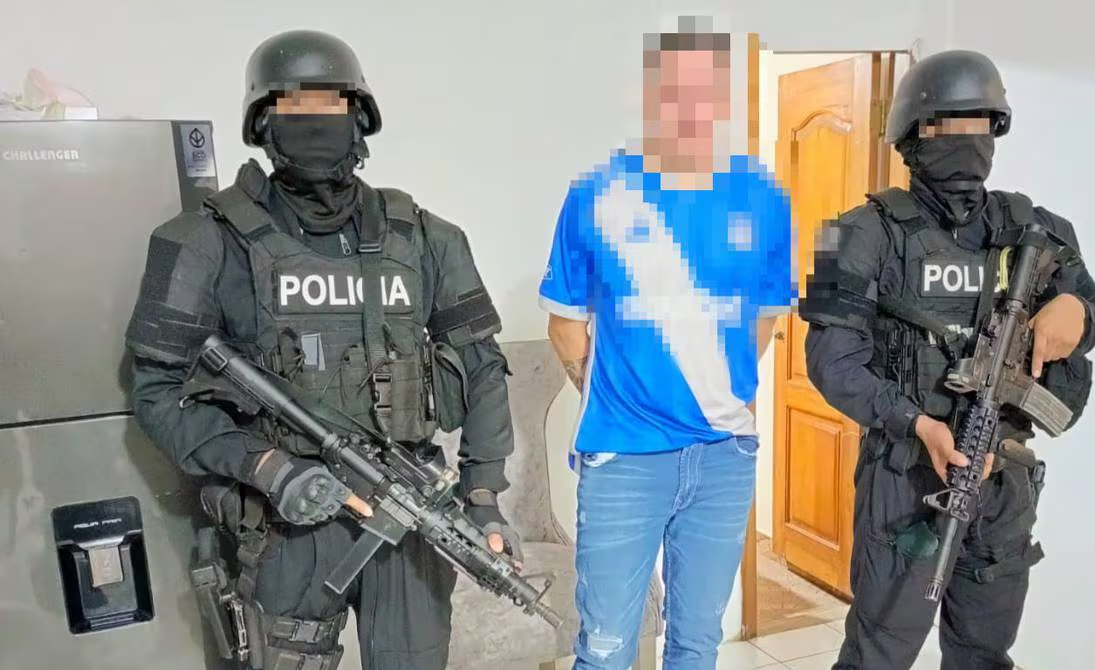
Alongside the arrests, authorities seized material used in the alleged criminal’s operations, including five firearms, seven magazines, one Motorola radio, one telescopic sight, four motorcycles, twenty phones, 135 rounds of ammunition, and six vehicles alongside an unidentified “binding evidence.”
The operation, dubbed “Gran Fenix 29” resulted in the arrest of 21 other alleged criminals, three of whom are foreigners. These “Gran Fenix” operations are a series of raids launched by police throughout 2024 to crack down on narcotrafficking and other crimes conducted by the various gangs which President Daniel Noboa labeled terrorist organizations following the escape of Fito from prison in January and the widespread breakdown of security within Ecuador that came after the gang leader’s escape.
The Ongoing Security Situation in Ecuador
Ecuadorian authorities have been struggling to restore order within Ecuador, with authorities still grappling with a large increase in violent crime within the country following the escape of Fito and the subsequent declaration of war against the government issued by the various gangs within the country. In response to Fito’s escape, President Daniel Noboa declared a state of emergency and mobilized the Ecuadorian armed forces. Now, nearly four months later, authorities are still struggling to restore order to the country, with a number of operations being launched to arrest members of criminal organizations and return order to riotous prisons.
These operations have been reported successes, as numerous criminal figures such as the aforementioned Mongolo alongside the recapture of an alleged escaped leader of “Los Lobos” by the name of Fabricio Colon Pico have demonstrated a crackdown on crime by Ecuadorian authorities. However, while authorities have reported a number of detained criminals ranging from gang leaders to minor members, the poor security situation in Ecuador persists, with governments such as the UK and US suggesting that tourists do not visit the South American country.
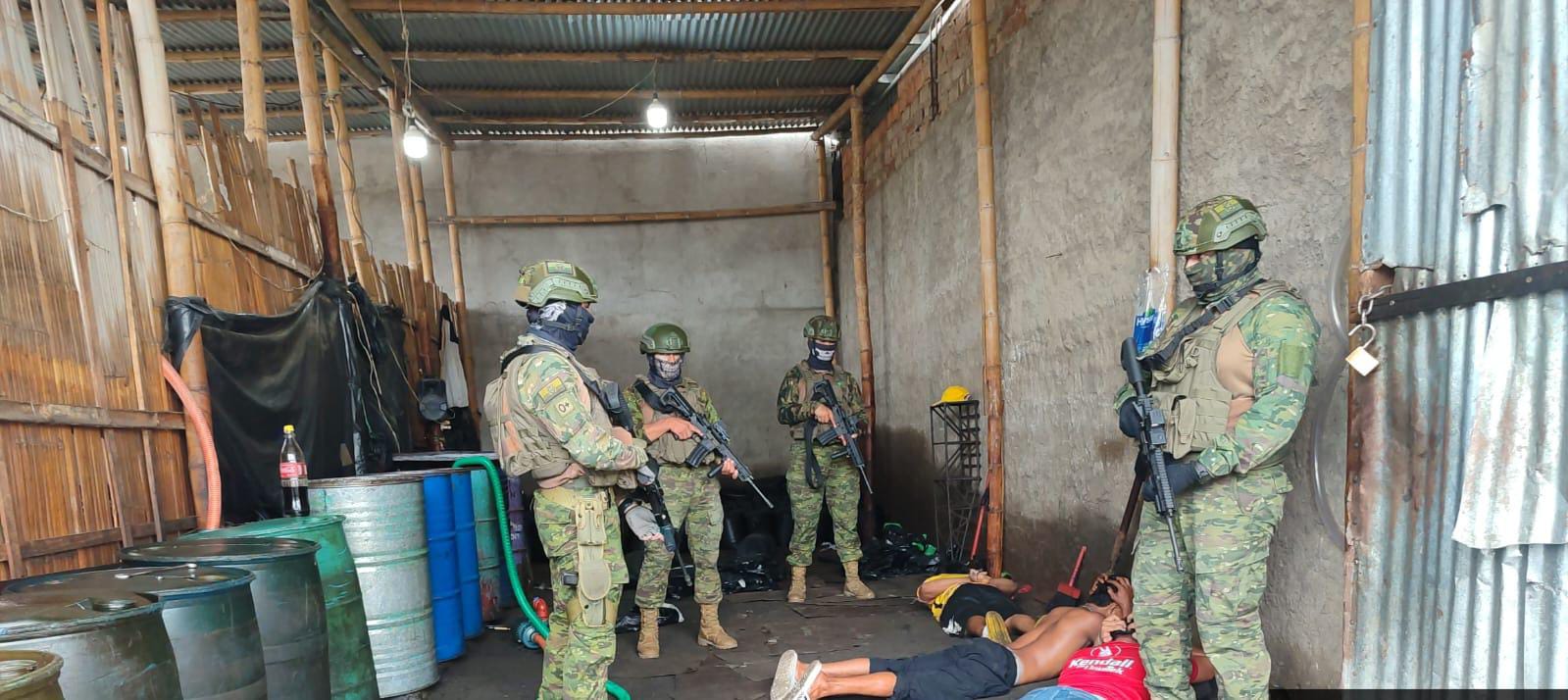
Despite the ongoing violence and continued presence of criminal elements in Ecuador, Noboa has continued his policies against the gangs active within the country with the president reissuing the state of emergency in seven provinces of the country on May 22nd. Despite this move, Noboa’s previous reissuance was struck down by Ecuador’s Constitutional Court, with the court stating that the declaration was not sufficiently justified.
In mid-April, Noboa’s government managed to pass a number of security reforms in a national referendum which sought to grant the president more power to fight against the various criminal gangs within Ecuador. Between 63 and 70 percent of voters voted in favor of the security measures, some of which include the authorization to expand patrols by military and police units, prevent parole for crimes like kidnapping or terrorism financing, extradite wanted criminals, establish longer sentences for violent crimes, tougher gun restrictions in regions nearby prisons, and the authorization of the military to use confiscated weapons.
With the increase in crime, many analysts have drawn a connection between Noboa and the President of El Salvador, Nayib Bukele, who successfully brought El Salvador’s murder rate down from 52 killings per 100,000 people in 2018 to 2.3 in 2023, in less than a decade remaking El Salvador into one of the safest countries in Latin America with a murder rate lower than the United States. This success has been attributed to Bukele’s “Territorial Control Plan” which armed police with better firearms and protective equipment and increased police presence in areas rife with crime alongside the president’s controversial declaration of a state of emergency within the country which allowed authorities to make sweeping arrests of those believed to be affiliated with gangs within El Salvador.
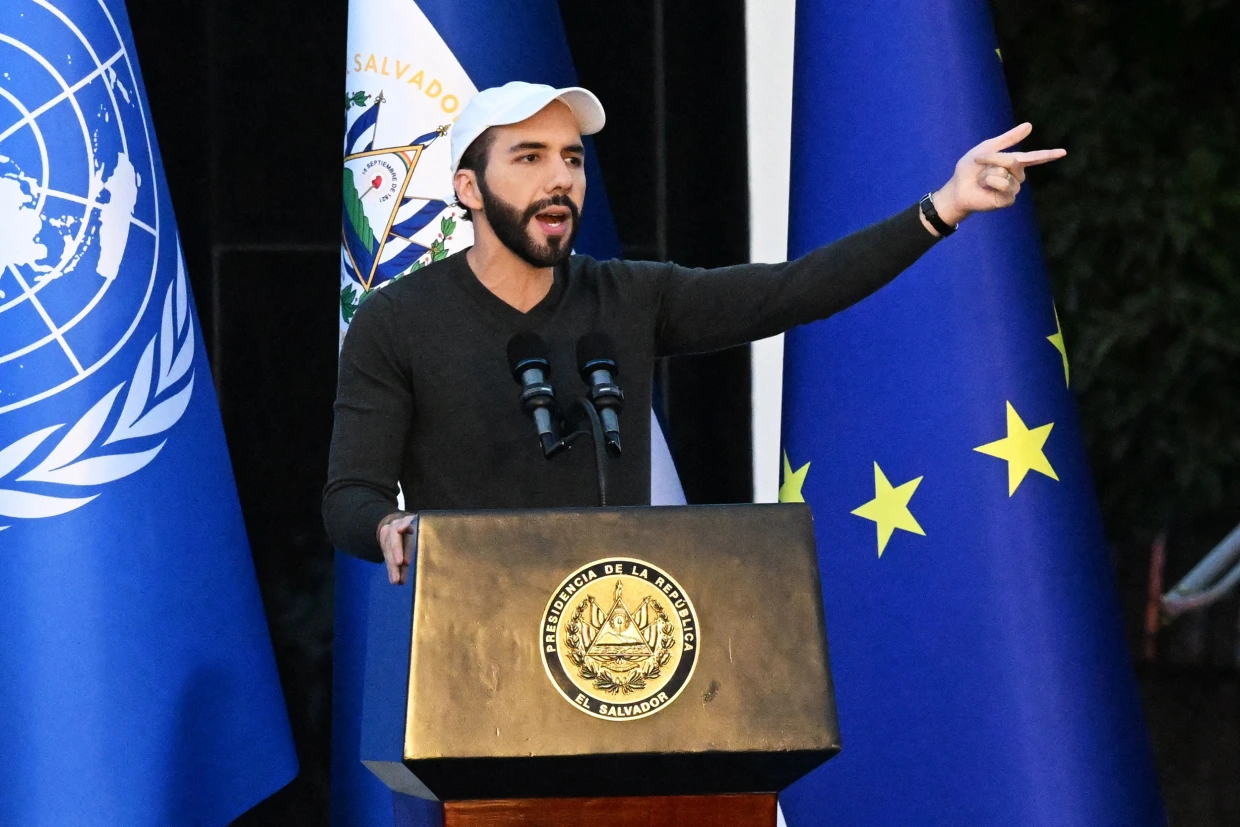
Some have suggested that a similar policy could bring safety to Ecuador, with Noboa himself campaigning with the promise of constructing “prison ships” which are planned to hold key figures within the various gangs’ structure and violent criminals that pose a significant risk to Ecuadorian civilians at sea. Noboa admitted that such a plan is not a long-term solution to Ecuador’s security crisis, announcing that construction of a number of maximum security prisons with a large occupancy limit was also set to begin in January.
“They [the prison ships] are a complementary and provisional measure to segment and remove prisoners who are real threats to the public and national security and keep them isolated until the maximum and super maximum security prisons are completed,” Noboa said in December.
Others have cast doubts on Bukele’s actions to solve Ecuador’s current crisis, citing the number of corrupt officials which work alongside various gang members to enrich themselves, while others have claimed the gangs within Ecuador are better equipped and organized than their counterparts like MS-13 and Barrio-18 in El Salvador, making Noboa’s job more difficult. Furthermore, critics argue that Ecuador’s sheer size would impede such a policy, with both the national population and amount of criminals acting as a key obstacle for housing criminals after a conviction.
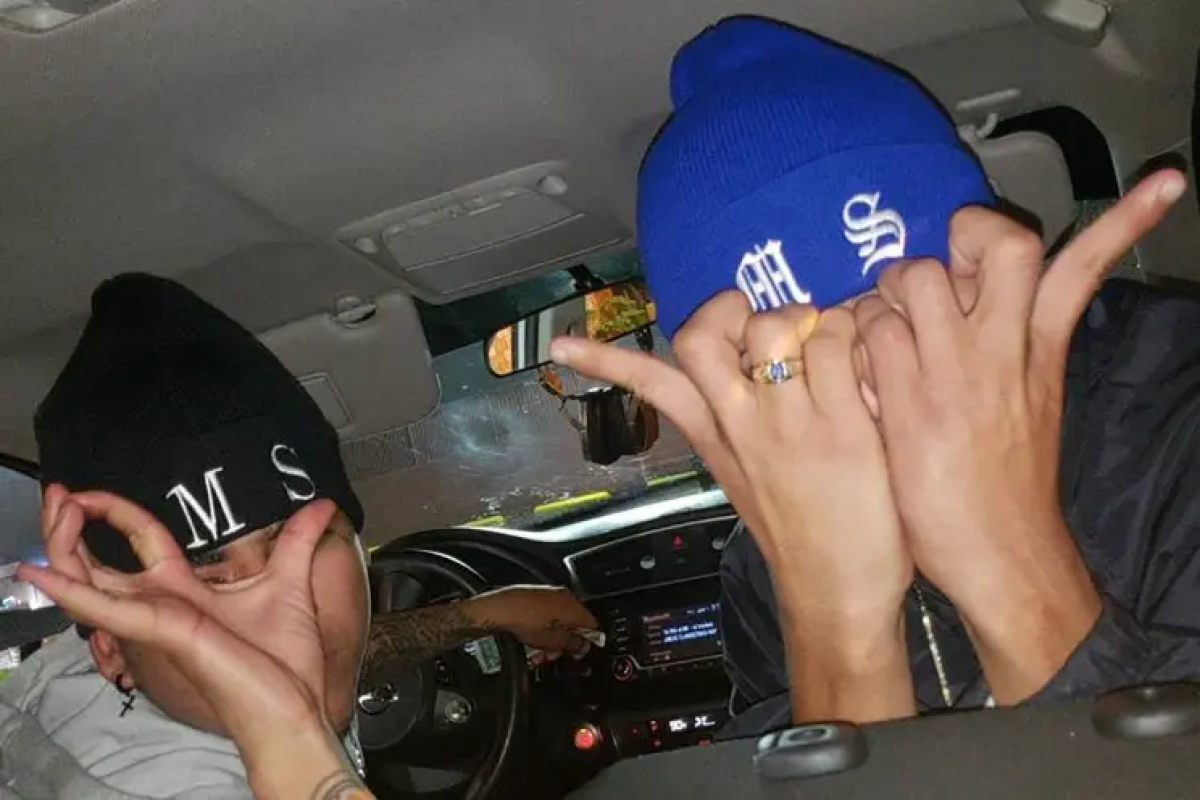
Opponents further argue that much of the income of the gangs of Ecuador revolves around the drug trade due to the country’s strategic location on the western coast of South America, granting such organizations further income to purchase arms and recruit new members. This also means that the health and well-being of Ecuador’s gangs directly correlate to the interest of various drug trafficking organizations such as Mexico’s cartels, the Albanian mafia, and Colombian groups such as the Revolutionary Armed Forces of Colombia (FARC), which operates largely on the Ecuadorian-Colombian border.
The Catalyst
The ongoing crisis began when infamous gang leader Jose “Fito” Macias escaped from the prison in Guayaquil. Ecuadorian President Daniel Noboa declared a nationwide state of emergency, mobilizing the nation’s military and establishing a curfew in response to the escape, which may have prompted the violent reaction by gang members. Following the escape, riots broke out in prisons located in El Oro, Loja, Chimborazo, Cotopaxi, Azuay, and Pichincha, where 177 prison guards were taken hostage by prisoners. Ecuadorian police freed those held captive in late January. After the outbreak of violence, President Noboa issued a presidential decree that recognized “the existence of an internal armed conflict,” classifying the gangs as terrorist organizations.
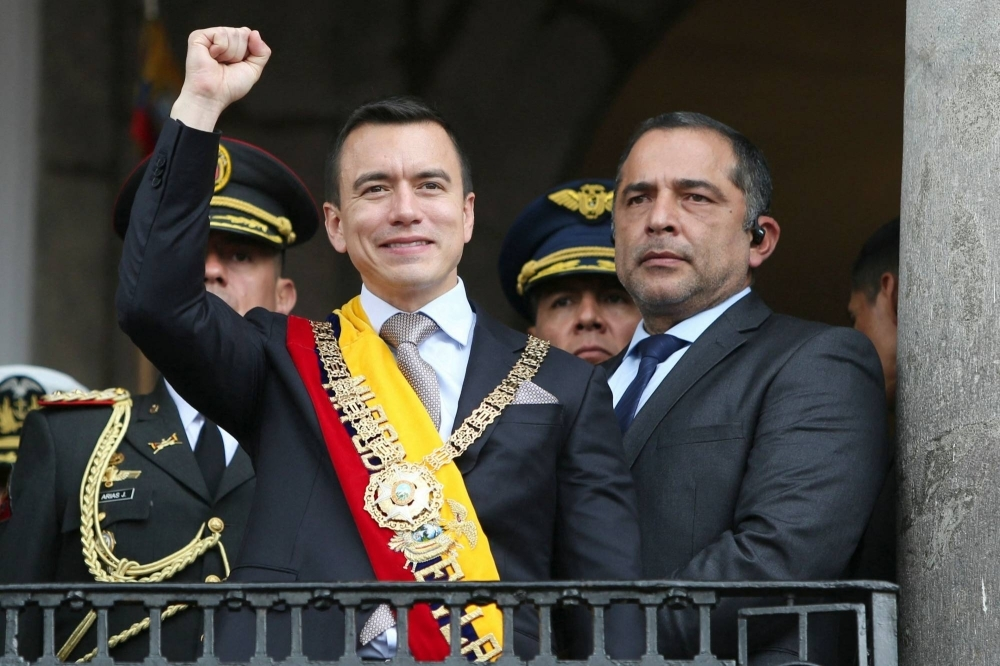
The gangs classified as terrorist groups include Aguilas, AguilasKiller, Ak47, Caballeros Oscuros, ChoneKiller, Choneros, Corvicheros, Cartel de las Feas, Cubanos, Fatales, Ganster, Kater Piler, Lagartos, Latin Kings, Lobos, Los P.27, Los Tiburones, Mafia 18, Mafia Trébol, Patrones, R7, and Tiguerones.
Fito currently remains at large, with authorities working to uncover the fugitive’s location and recapture him. Previously, authorities believed Fito planned to escape to Argentina after it was discovered that the leader’s family entered the country just two days prior to Fito’s escape. Following that discovery, Fito’s family was deported back to Ecuador in late January with local media reporting the family had purchased a home in November 2023.
While some theorize that the gangs took up arms against the government in response to Noboa’s state of emergency, others believe that the true origin of the conflict lies in the actions of Diana Salazar, the Attorney General of Ecuador.
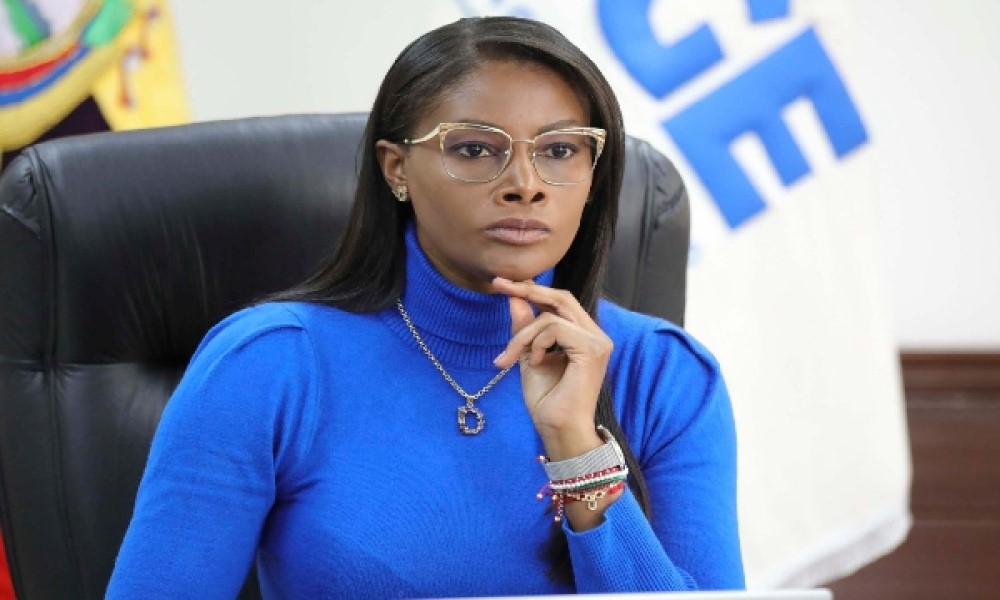
Salazar is often seen as the brain behind a series of investigations into numerous politicians, police officials, and prosecutors who had allegedly worked alongside Ecuador’s gangs for personal gain. This investigation, dubbed “metastasis,” a term used to describe the spread of malignant growth, would surely be responded to with “an escalation of violence” from criminal organizations, according to Salazar.
The investigation began in 2022 following the murder of drug lord Leandro Norero, who was killed while serving time in prison. Investigators searched Norero’s phone, discovering evidence of high-ranking state officials cooperating with Norero while handing out favors in exchange for money, gold, prostitutes, apartments, and other luxuries.
Following her investigation, over 75 raids were launched against those who cooperated with Norero, and dozens of suspects were arrested.

